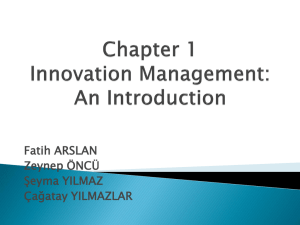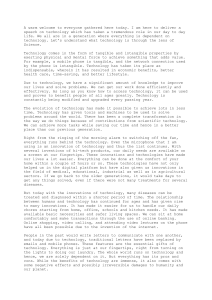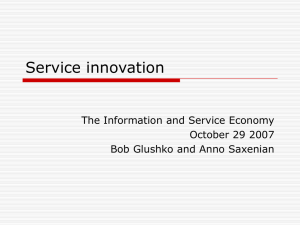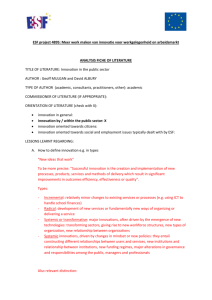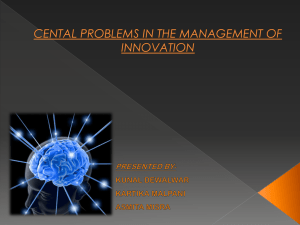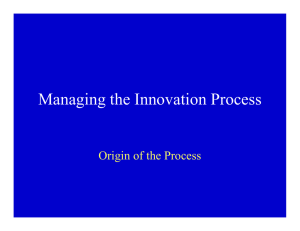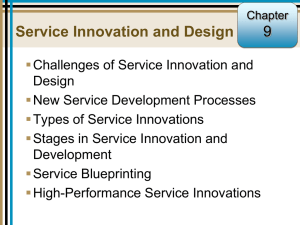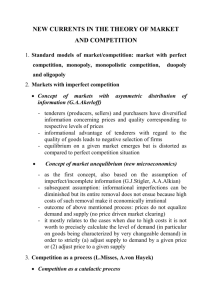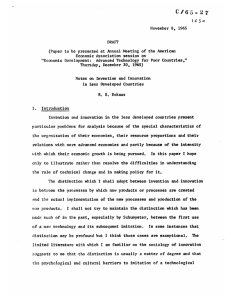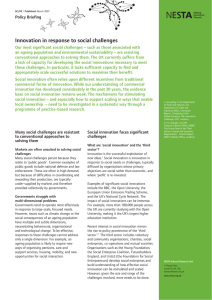Innovation
advertisement
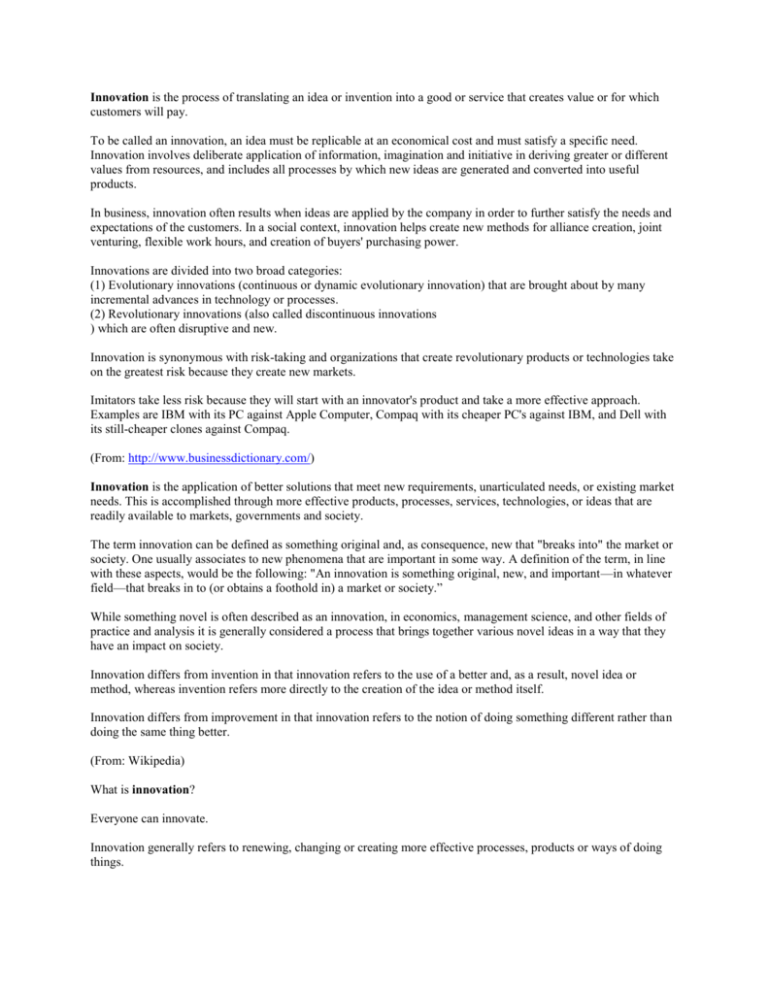
Innovation is the process of translating an idea or invention into a good or service that creates value or for which customers will pay. To be called an innovation, an idea must be replicable at an economical cost and must satisfy a specific need. Innovation involves deliberate application of information, imagination and initiative in deriving greater or different values from resources, and includes all processes by which new ideas are generated and converted into useful products. In business, innovation often results when ideas are applied by the company in order to further satisfy the needs and expectations of the customers. In a social context, innovation helps create new methods for alliance creation, joint venturing, flexible work hours, and creation of buyers' purchasing power. Innovations are divided into two broad categories: (1) Evolutionary innovations (continuous or dynamic evolutionary innovation) that are brought about by many incremental advances in technology or processes. (2) Revolutionary innovations (also called discontinuous innovations ) which are often disruptive and new. Innovation is synonymous with risk-taking and organizations that create revolutionary products or technologies take on the greatest risk because they create new markets. Imitators take less risk because they will start with an innovator's product and take a more effective approach. Examples are IBM with its PC against Apple Computer, Compaq with its cheaper PC's against IBM, and Dell with its still-cheaper clones against Compaq. (From: http://www.businessdictionary.com/) Innovation is the application of better solutions that meet new requirements, unarticulated needs, or existing market needs. This is accomplished through more effective products, processes, services, technologies, or ideas that are readily available to markets, governments and society. The term innovation can be defined as something original and, as consequence, new that "breaks into" the market or society. One usually associates to new phenomena that are important in some way. A definition of the term, in line with these aspects, would be the following: "An innovation is something original, new, and important—in whatever field—that breaks in to (or obtains a foothold in) a market or society.” While something novel is often described as an innovation, in economics, management science, and other fields of practice and analysis it is generally considered a process that brings together various novel ideas in a way that they have an impact on society. Innovation differs from invention in that innovation refers to the use of a better and, as a result, novel idea or method, whereas invention refers more directly to the creation of the idea or method itself. Innovation differs from improvement in that innovation refers to the notion of doing something different rather than doing the same thing better. (From: Wikipedia) What is innovation? Everyone can innovate. Innovation generally refers to renewing, changing or creating more effective processes, products or ways of doing things. For businesses, this could mean implementing new ideas, creating dynamic products or improving your existing services. Innovation can be a catalyst for the growth and success of your business, and help you adapt and grow in the marketplace. Being innovative does not mean inventing; innovation can mean changing your business model and adapting to changes in your environment to deliver better products or services. Successful innovation should be an in-built part of your business strategy and the strategic vision, where you create an environment and lead in innovative thinking and creative problem solving. Some common themes around innovation: 1. Conduct an analysis of the market environment, your customers wants and needs and competitors. Be open to new ideas and adaptive to change. 2. Develop a strategic responsive plan which includes innovation as a key business process across the entire business. 3. Leadership in innovation. Train and empower employees to think innovatively from the top down. Inspirational leadership and motivation is what drives innovation in business. 4. Connect with customers and employees to generate ideas for improving processes, products and services both internally and externally. 5. Seek advice. Utilise available resources, business advisors, grants and assistance to drive innovation in your business. This may include seeking Intellectual Property (IP) protection for commercialisation of ideas. Remember, innovation is the key to competitive advantage for your business. (From: http://www.business.gov.au/).
